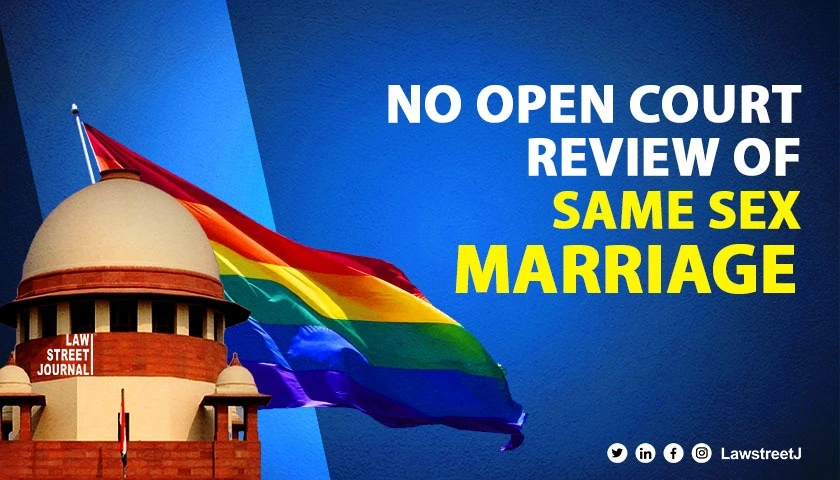New Delhi: The Supreme Court on Tuesday refused an open court hearing for review petitions against its October 2023 judgment that didn't recognize the right of same-sex couples to enter into marriages or have civil unions.
A bench headed by the Chief Justice of India, DY Chandrachud, refused an open court hearing, observing that review petitions before the constitution bench are heard in chambers. The court said that such review pleas are not heard in open court.
Senior Advocate NK Kaul mentioned the review petition before the top court and urged for an open court hearing.
The review plea is scheduled to be heard on July 10 by a five-judge bench headed by Chief Justice of India DY Chandrachud. The other four judges on the bench are Justices Sanjiv Khanna, Hima Kohli, BV Nagarathna, and PS Narasimha.
Justices Sanjiv Khanna and BV Nagarathna are replacing the retired judges Justices SK Kaul and S Ravindra Bhat.
Various review petitions have been filed in the Supreme Court challenging the top court judgment which declined marriage equality rights to queer couples.
The petitioners have sought to review the majority judgment dated October 17, 2023, passed by the top court, which rejected a batch of petitions seeking legal recognition of same-sex and queer marriages under the Special Marriage Act, 1954 (SMA), Foreign Marriage Act, 1969 (FMA), Citizenship Act, 1955, common law, and other existing legislations.
In October 2023, the apex court delivered the verdict where the majority judgment held that there is no fundamental right to marry; transgender persons have the right to heterosexual marriage under the existing provisions of the Transgender Persons (Protection of Rights) Act, 2019, and the Transgender Persons (Protection of Rights) Rules, 2020. The majority judgment also refused to grant adoption rights to same-sex couples.
The petitioners claimed that the top court judgment is contrary to established principles and a grave miscarriage of justice.
The petition said that the operation of the majority judgment has grave consequences for the lives and relationships that the petitioners have built together, which remain outside the protection of the law.















